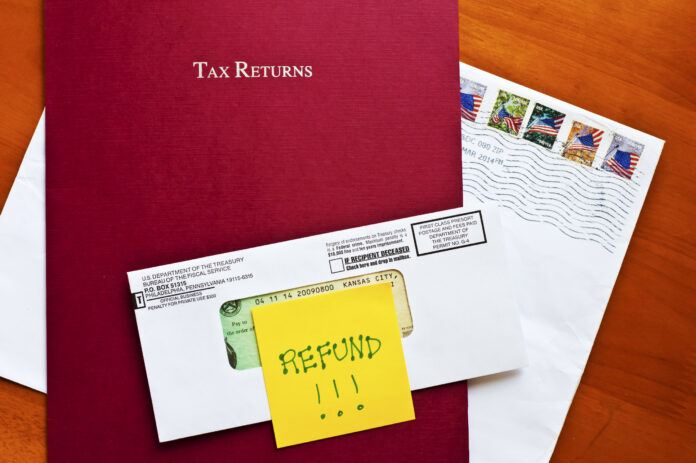As the tax deadline on April 15 approaches, many Americans might be unaware their tax refunds could be seized by the federal government this year.
Many look forward to their tax refunds as a way to dissolve some of their debt, add to savings or make new purchases.
But the Treasury Offset Program (TOP) will be taking away the tax refunds for many Americans who have not yet satisfied their previous debts. These include state and federal tax debt, student loans and child support, among others.
TOP was updated in 2008 so that the government could do this for an indefinite period of time, and many debt carriers are paying the price. The previous rule only allowed tax refunds to be seized for up to 10 years from a tax filing.
Eleanor Ivins
“If you have outstanding debt on a federal level, you can have portions or all of your tax refund seized in order to pay the debt,” Alex Beene, a financial literacy instructor for the University of Tennessee at Martin, told Newsweek. “For many, this can be sudden and shocking, as there isn’t always forewarning the deduction will occur.”
Last year, the federal government seized more than $3.8 billion in both state and federal delinquent debts through the program.
If the types of debt covered by the program apply to you, you will typically receive a letter saying you have delinquent debt at least 60 days before the TOP gets notice. If your debt is still unpaid after 120 days, that’s when the program could be triggered and prevent you from getting any future tax refunds.
The TOP will stop reaching into your tax refunds when you’ve paid off the debt in full, whether it’s a federal or state income tax delinquency, child support, unemployment insurance or a student loan in default. This does not apply, however, to mortgages and credit card or car loan debt.
Americans also frequently have their Social Security benefits seized by TOP, but the program will only take 15 percent of the money away.
The best way to keep this from happening to you is to keep on top of any and all debts, Beene said.
“The only way to prepare is to know what outstanding debt you may have to the government,” Beene said. “If you feel there’s been an error, reach out to the IRS, but be prepared for a lengthy wait to get a response. Patience and persistence are key.”
While the TOP has been around for years now, many complain that they do not receive adequate notification before their refunds or other benefits are taken away.
“You may receive very little notification of a debt being owed to the government and only may notice when you receive a much smaller tax refund or no refund at all during tax time,” financial planner Kevin Thompson, who is also the CEO and founder of 9i Capital Group, told Newsweek.
“Many people that do not realize they owe a tax debt of $25 or more will be upset and angry when they see their tax refund being smaller than anticipated, especially if they were using that money to pay down debt. So it is imperative to know your status with the federal government prior to tax season.”
Uncommon Knowledge
Newsweek is committed to challenging conventional wisdom and finding connections in the search for common ground.
Newsweek is committed to challenging conventional wisdom and finding connections in the search for common ground.


